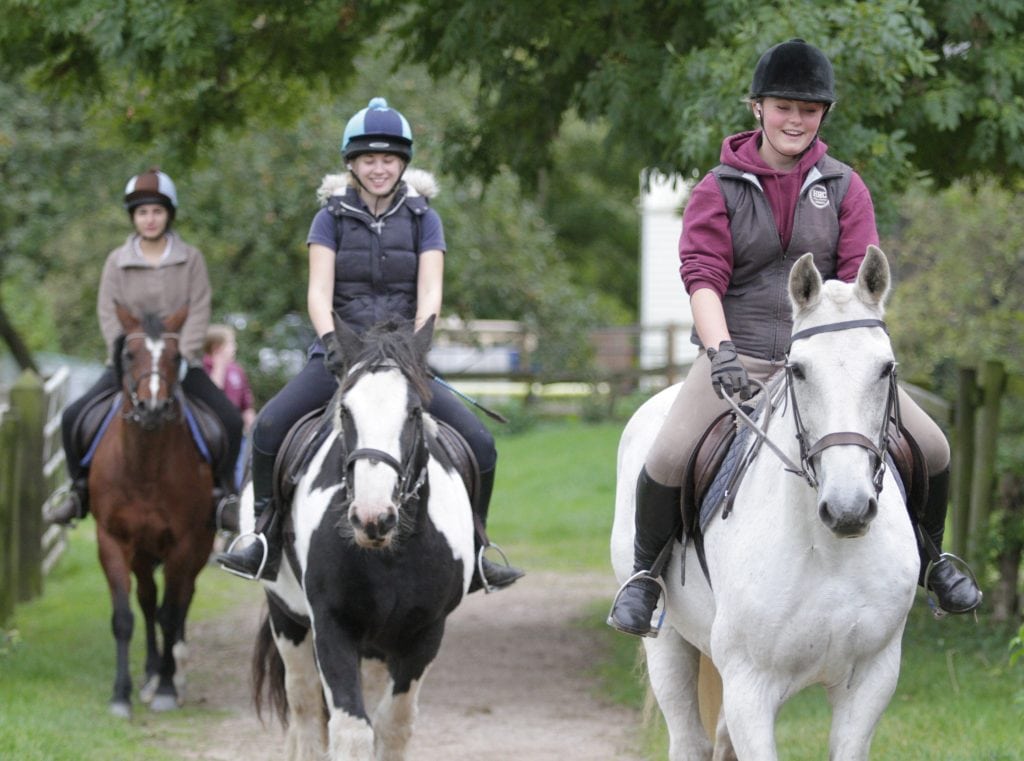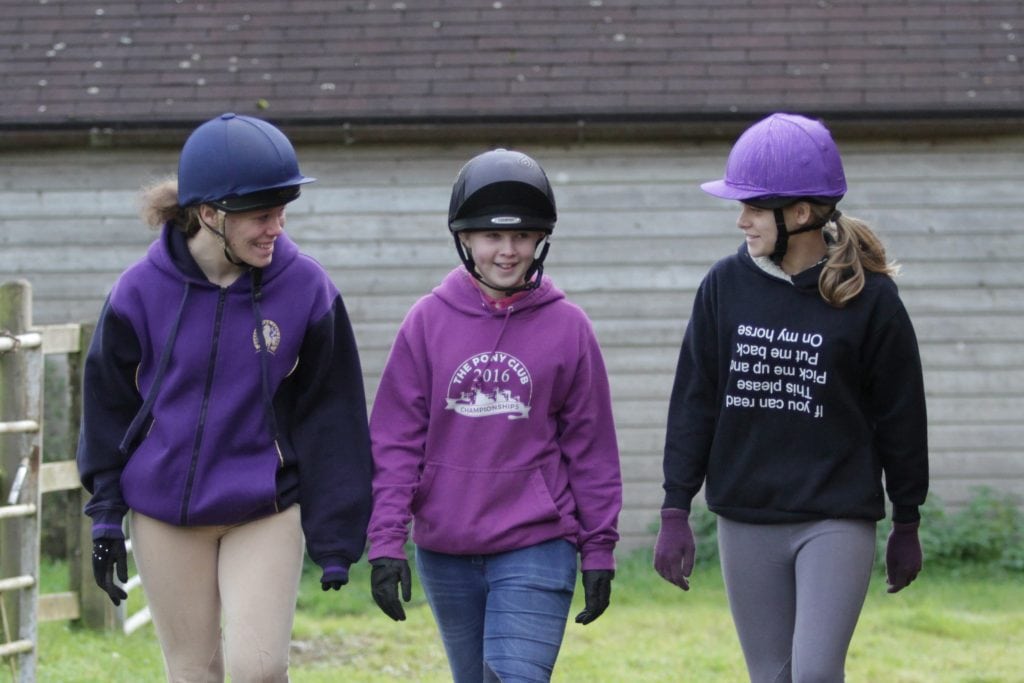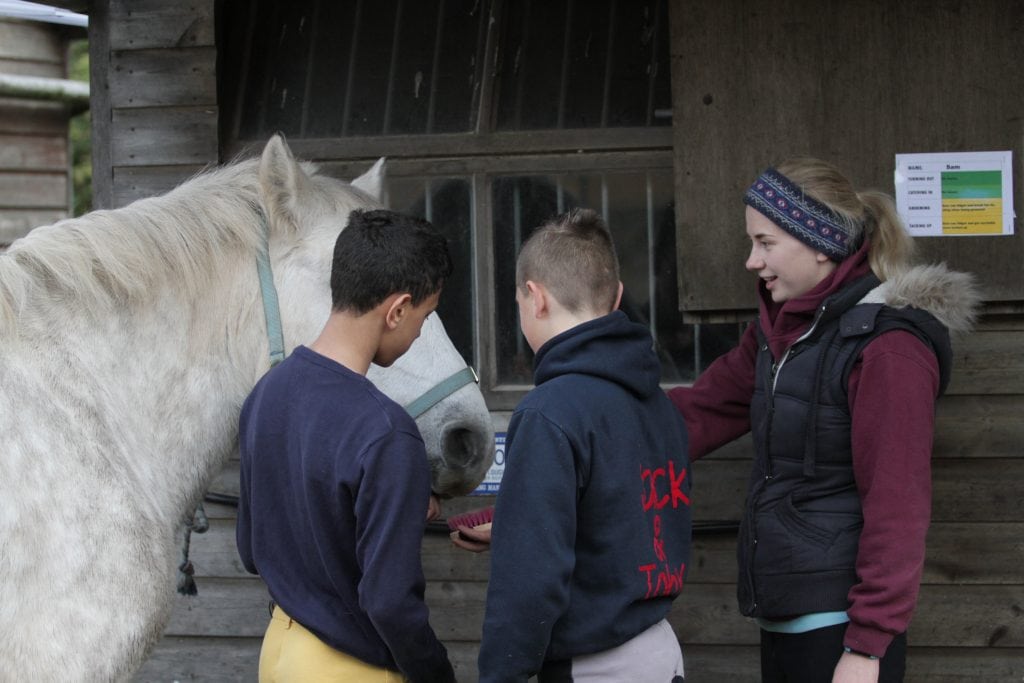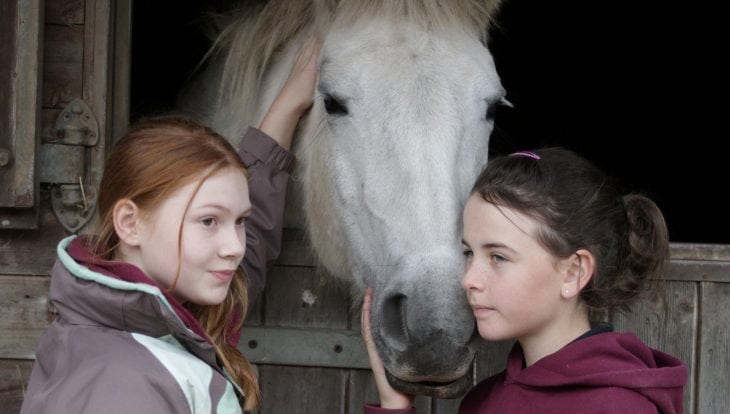Alarmingly, 1 in 10 young people have a diagnosed mental health issue and over half of all mental health problems are established by the age of 14.
With the prevalence of mental health issues on the rise, it’s more important than ever that organisations working with young people take responsibility for young people’s mental well being and make steps to ensure the environment is as positive and comfortable as possible.
Factors that can help build a good mental health include exercise, taking part in local activities and spending time outdoors, all of which feature massively in a Young Equestrians Club. Despite the positive effects of youth clubs like Young Equestrians, young people still face pressures within other areas of their life which can cause wider issues that then affect their general mental well-being.

We aim for all of our Young Equestrians Clubs to be as inclusive and positive environments as possible, and we want to help Clubs learn more about mental well-being to be able to play a part in supporting young people to grow into well-rounded, healthy adults who are able to socialise and contribute to the community.
The charity Mind has created the CARE model which can be used to promote good mental health. CARE stands for: Customer, Awareness, Respect, Empathy, and you can use these pointers to check you are doing all you can to promote good mental health within your Young Equestrians Club:
Be Customer focused – Use your coaching and customer service skills to ensure all your Club Members have a positive experience. This starts with making young people feel comfortable from the off by being welcoming and talking to them as they arrive for sessions.
Ensure that everyone attending feels included with the activities, which may mean you have to offer alternative activities to different motivations (for example some Young Equestrians may not feel confident to jump at the moment so any riding sessions will need to have different exercises for different abilities).
Making the effort to regularly get feedback from your Young Equestrians will ensure that their experience remains positive and will give you more ideas of how to shape the Club in future.

Have Awareness – It is important to get to know your Young Equestrians to understand what is ‘usual’ so you can recognise if there are ever changes in their behaviour. Recognising these changes will give you an indicator that you perhaps need to be mindful of their mental health within that session or period of time. If you are made aware of any issues you can ask them about how they would like to be supported.
Promote Respect – It goes without saying that all Club Members should treat each other with respect; however Club Leaders have the ability to influence this by ensuring a good example is set. Make sure that everyone is treated fairly and avoid singling anybody out in case this makes them feel uncomfortable.
Make members of the Club aware that you are there for them to listen and any treat any information they give you in confidence. If you have any concerns about a Club Member’s welfare seek support, don’t feel you have to tackle the issue alone.
Demonstrate Empathy – You may not know exactly how people feel but you may be able to consider your own similar experiences when determining how someone would want to be treated. Making an effort to learn more about mental health (which you have already starting doing by reading this article) will help you to have a better understanding in case any issues arise with individuals.

We got our inspiration for this article from the UK Coaching video Promoting Good Mental Health through Coaching where a Senior Adviser at Public Health England talks through the CARE model.
